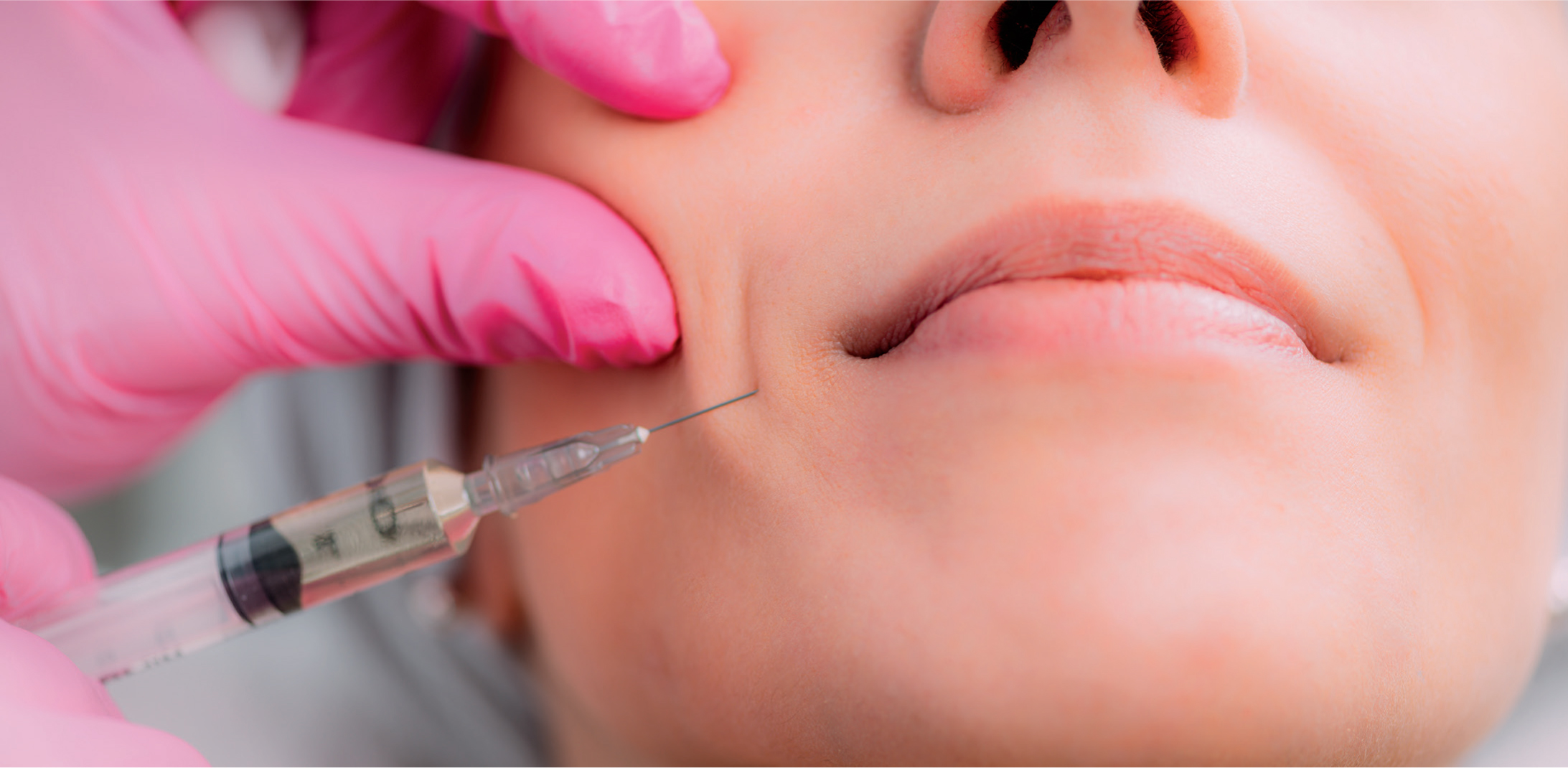

During the past few months, the rumour network has been actively disseminating opinion and speculation on whether the Westminster Government remains intent on implementing a robust system of licensing for the aesthetic sector in England. A range of webinars and online discussions have added to the formulation of a range of unsubstantiated speculative comments on this matter.
The JCCP has been actively following these debates and discussion groups, but remains firmly committed to the adoption of an evidence-based approach to inform its own opinions and communication strategy. The JCCP wrote to the Secretary of State, Steve Barclay, in October 2022, advising that the enactment of a new licencing scheme for non-surgical cosmetic procedures in England was required to protect members of the public from receiving harmful procedures. This is crucial, as when performed badly, procedures can cause infection, allergic reactions, disfigurement, psycho-emotional trauma, as well as the need for hospitalisation and corrective treatment. In our letter, we sought ‘assurance that the significant progress that has been made by the Government on this matter will continue at pace’ under governmental leadership and highlighted ‘four key areas of focus that we believe the Government should now action as a priority:
- The design and implementation of a national licensing scheme for all premises where licenced procedures are conducted as well as practitioners of non-surgical cosmetic procedures to ensure that all those who practise invasive procedures are competent and safe for members of the public (as proposed in Paragraph/Clause 180 of the Health and Care Act, 2022).
- A requirement for all practitioners to hold adequate medical insurance in order to provide non-surgical cosmetic procedures.
- The development of official guidance on the training and qualification expectations for all practitioners, including knowledge and application of infection controls and first aid training.
- The development of a system for the eflective recording of adverse incidents and public awareness-raising to ensure that all cases that go wrong can be tracked, and improvements to safety made as a result. Members of the public need better tools and knowledge in order to protect themselves.’
The JCCP also requested the Department of Health and Social Care ‘to consult with the professional regulatory bodies responsible for the regulation of prescribers in the United Kingdom with the aim of ending the unsafe practice of remote prescribing in the aesthetics sector. This would require a commitment from the professional regulatory bodies to publish guidance to prohibit the harmful practice of permitting prescribers to prescribe to third party practitioners without first ensuring that a face-to-face consultation has taken place between the prescriber and the patient. Again, this is a key step in ensuring public safety’.
The Parliamentary Under Secretary of State, Maria Caulfield, replied to the JCCP on the 17th January, 2023 to advise that ‘I would like to assure you that the Government is committed to ensuring the improvement of safety standards for those who elect to receive non-surgical procedures. We have a duty to keep members of the public well informed to allow for safe decision-making. I welcome your support of the amendment to the Health and Care Act 2022 that gives the Secretary of State for Health and Social Care the power to introduce a licensing scheme for non-surgical cosmetic procedures. Departmental officials will work as quickly as possible to introduce the licensing scheme and will consider all the important areas. The licensing scheme will ensure that practitioners offiering specified procedures are appropriately trained and qualified, including on infection control and first aid, are operating from suitable premises and have adequate medical insurance in place. Officials will be establishing the standards needed to obtain each respective licence. The licensing scheme is intended to cover those procedures that are deemed to pose the greatest risk to public safety. We know this is a fast-moving sector, and officials will consider how best to future-proof the regulations so that new and emerging treatments are captured by the scheme’.
The JCCP responded to this letter by advising ‘we are reassured by the response received from the Parliamentary Under Secretary of State to the key issues raised in our letter of representation to the Secretary of State and to matters raised directly with the Health and Social Select Committee in recent months which have also been supported by Jeremy Hunt and his colleagues. We very much look forward to continuing our engagement with the Government and health care regulators during the forthcoming months to realise the key objective of embedding patient safety and public protection for members of the public who elect to engage with non-surgical procedures within the context of national enforceable legislation’.
The next step in the process was the publication of the Government's response to the Health and Social Care Committee's ‘Report on the Impact of Body Image on Mental Health and Physical Health’ (published on the 2nd February, 2023). In that report, the Government confirmed its intention to take ‘forward work to introduce a licensing scheme for non-surgical cosmetic procedures in England’ and ‘to agree the procedures in scope of the licensing scheme and communicate a plan for delivery by July 2023’. The Government also noted that ‘the scale of the work required to inform the regulations and establish the scheme means that we will not be able to meet the timeline recommended by the Committee’ (i.e., the full implementation of the license by this date). Some have interpreted this statement as indicating that the Government has wavered on its intention to introduce a system of licencing such as that called for by the JCCP (and others). The JCCP considers such an interpretation to be misplaced or ill-informed, thus supporting the Government in its decision to ensure that a further period of time is taken to ensure the thorough, fair and equitable design of a robust system of licensing in England. In our opinion, this will take up to a further two years to become fully operational and legally enforceable.

The Government's response to the Select Committee also advised that ‘we encourage anyone considering a cosmetic procedure to take the time to find a reputable, insured and qualified practitioner, as well as reflect on the possible impact of the procedure on both their physical and mental health. Choosing a practitioner subject to statutory regulation or on a voluntary register accredited by the Professional Standards Authority provides assurance that they hold the requisite knowledge, qualifications and insurance to safely perform the procedures they are offering’. The JCCP believes that further work is required to define the key standards that should inform safe and adequate assessment of risk. The importance of ensuring that procedures are conducted within safe and hygienic premises is also a key requirement for health protection. The Department of Health and Social Care (DHSC) acknowledges that ‘there are currently no specific premises standards for beauty salons and non-CQC (Care Quality Commission)-registered premises providing non-surgical cosmetic procedures. We will consider whether specific premises standards are needed and what they should include. We also want to ensure that we do not duplicate inspection regimes. We will, therefore, continue to work with the CQC to ensure that, if introduced, any new premises standards operate consistently with regulatory frameworks already in place’. The JCCP remains firmly of the opinion that the DHSC should require all practitioners who provide non-surgical procedures that are included within the scope of the new license must provide evidence that they possess a premises license that is designed to meet the specific needs of the aesthetics sector. The JCCP welcomes the statement of intent presented by the Government to work with the CQC to avoid duplication of inspection regimes/procedures for the aesthetics sector but is committed to ensure that members of the public are protected from any inadvertent consequence or fragmentation that might result in any practitioner not being held to account for their practice in accordance with the Government's proposed licensing standards.
» [The enactment of a new licencing scheme for non-surgical cosmetic procedures in England] is crucial, as when performed badly, procedures can cause infection, allergic reactions, disfigurement, psycho-emotional trauma, as well as the need for hospitalisation and corrective treatment «
The JCCP has long campaigned for the enforcement of a mandated minimum standard to be met in regard to the education and training of practitioners who perform non-surgical cosmetic procedures. We believe this is essential to ensure patient safety, and thus should be a central pillar of a future licensing regime. The JCCP was delighted therefore to note that this recommendation has been accepted: ‘the government agrees that those who offer non-surgical cosmetic procedures to the public should be suitably trained and qualified. We recognise there is a need for nationally recognised standards covering the education, training and qualifications required for the administration of non-surgical cosmetic procedures. The JCCP has already developed a competency framework covering high-risk non-surgical cosmetic procedures and there are a limited number of bodies currently able to offer training courses on non-surgical cosmetic procedures. This includes universities, colleges and private training companies. There are also a range of Ofqual-approved qualifications that are delivered by recognised Ofqual awarding bodies. We will work with the JCCP and other relevant stakeholders to consider whether further education and training requirements are necessary’. The JCCP looks forward to contributing to this agenda discussion.
However, the JCCP was disappointed to note that the Government has no plans to make dermal fillers ‘prescription only devices’. We are of the opinion that further work must be transacted as a matter of urgency to identify alternative safeguards to ensure the safe manufacture, distribution, supply and administration of dermal fillers. We will continue to work with a range of pharma companies, pharmacies and the MHRA to consider alternative safeguards in both the supply chain and in terms of who should be entitled to administer such invasive procedures.

Finally, we draw attention to Recommendation 21 which sets out the Government's response to our calls for more robust and assertive regulation on advertising and social media. We appreciate and welcome the fact that ‘the government has recently outlined plans to strengthen medical devices regulation, including extending CE mark recognition as part of transitioning to a future regime and the scope of regulations to capture certain non-medical products with similar risk profiles to medical devices – this includes dermal fillers’. In my opinion, this falls short of what is required. The JCCP believes that all advertisements across all media channels should ‘include the requirement to display a kitemark and a warning logo on any advertisement for treatments that fall within the licensing regime's scope’. This recommendation was not supported by the government. The JCCP will reinforce a requirement for this issue to be revisited as a matter of urgency.
The report can be accessed in the government's response on the impact of body image on mental and physical health.
» The JCCP has long campaigned for the enforcement of a mandated minimum standard to be met in regard to the education and training of practitioners who perform non-surgical cosmetic procedures. We believe this is essential to ensure patient safety, and thus should be a central pillar of a future licensing regime «
Conclusion
This article has outlined the current position on licensing in for the aesthetics sector in England. The JCCP believes that there is much more work to transact if public protection is to be achieved and will continue to call for other additional measures to supplement the proposed licensing system:
- The need for extended powers to be given to the CQC to inspect all premises where invasive procedures that are included in the license are to be performed and to seek an assurance that the CQC will develop a memorandum of understanding with local authority licensing organisations to perform an integrated and enhanced scheme of regulation for aesthetics to avoid duplication for those healthcare professionals who are already registered with the CQC.
- To call for the implementation of a national register of approved qualifications and of approved education and training providers and request that Ofqual ensures that they only approve qualifications in the future that meet the new Government standard for education and training for the aesthetics sector.
- To seek (and call for) greater controls on the manufacture, supply and administration of Dermal Fillers.
- The Minister to be requested to write to all Professional Regulatory Bodies who have responsibility for prescribing to seek assurance that they will enforce guidance to ensure that all prescribers do not perform remote prescribing in the aesthetics sector.
- To seek the design and implementation of a Government-enforced system of annual data collection on types of aesthetic treatments, numbers of practitioners, premises, training courses and complications to inform the evidence base of a robust system of public protection in the UK.
- The legal enforcement of the requirement for all practitioners to have an appropriate level of medical indemnity insurance and to provide a transparent redress scheme for service users.
- National scrutiny and action to prevent the promotion through social media of unsafe, unethical and exaggerated messaging about products, education, training and aesthetic service provision.
In the meantime, we await further advice from the Department of Health and Social Care to outline their timetable for the design and implementation of the long-awaited system of legally enforceable licensing for the sector in England. We will also continue our work with colleagues in the other UK countries (and their devolved Government Officers) to support the implementation of aligned systems of regulation. For the avoidance of doubt the JCCP remains confident that the implementation of the new licensing scheme has the full support of Government officials and calls upon all members of the aesthetic sector to commit to play their part in co-designing the framework and implementation process for the new license.



